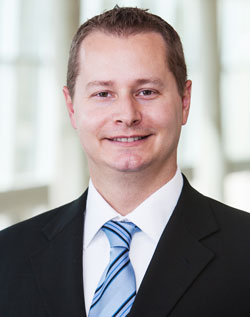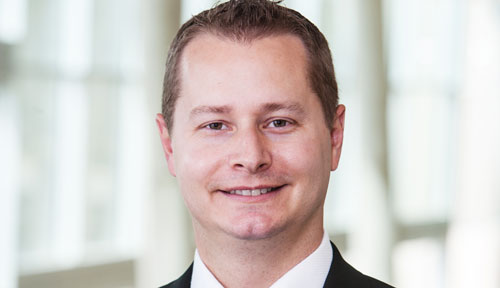 |
Jim Stimpson, Ph.D., will be honored with a New Investigator award on April 30. |
NOTE: This profile is part of a series to highlight the 16 researchers who will be honored April 30 at a ceremony for UNMC’s 2012 Scientist Laureate, Distinguished Scientist and New Investigator award recipients.
- Name: Jim Stimpson, Ph.D.
- Title: Director, UNMC Center for Health Policy; associate professor and graduate program director, department of health services research and administration, College of Public Health
- Joined UNMC: 2011
- Hometown: Pittsburgh, Pa.
Describe your research briefly in layman’s terms.
Colorectal cancer screening rates are far below recommendations by the U.S. Preventive Services Task Force. Among adults aged 50 or older in the United States, about half have ever had a screening endoscopy. A further concern is that the screening rate for minority and low socioeconomic groups is even lower. These disparities are not explained away by individual coverage of health insurance. Instead, there is speculation that a complex combination of socioeconomic disadvantage and place of residence may contribute to these persistent disparities in screening. My study examined community-level barriers to colorectal cancer screening and policy-modifiable mechanisms to reduce disparities in screening for racial and ethnic minorities. To carry out the study, I linked individual-level data on screening, demographics and behavior with county-level information such as the number of gastroenterologists in a particular community, as well as the number of uninsured individuals.
How does your research contribute to science and/or health care?
Colorectal cancer screening may be perceived to be unpleasant, embarrassing, frightening and time-consuming, and this perception is likely among the major reasons that colorectal cancer screening is far below recommended levels. Aside from improved technology that would reduce the time and unpleasantness of the procedure, public health officials are left to identify and remove as many other barriers as possible. By focusing on community level characteristics we may be better able to ameliorate population wide disparities in colorectal cancer compared to individual-level interventions for patients and providers.
What is the best piece of advice anyone ever gave you, professional or personal?
“You might want to consider a career in public health.”
List three things few people know about you.
- I have been skydiving (and loved it);
- I’ve been a vegetarian since 1997; and
- I’m a Mac aficionado.

Congratulations, Jim, and best wishes for continued success. We are very fortunate to have you here at UNMC.
Greg Karst